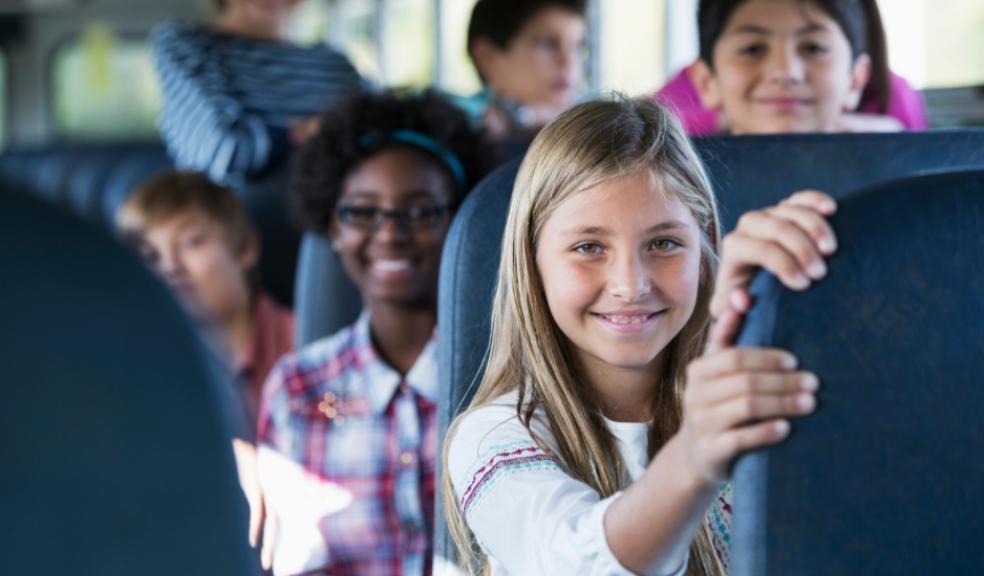
The pandemic sparks sustainable school transport revolution
With flights grounded, roads emptied, and industry suppressed as Covid-19 forced much of the world into lockdown, the subsequent effect on the environment was quickly noted. The air felt cleaner, waterways regained their transparency and plant life flourished.
However, the easing of restrictions saw old habits return with a vengeance. The re-opening of schools and offices saw humanity pile into their vehicles and our roads once again teem with low occupancy vehicles as though the pandemic had never happened. Yet again congestion, and the pollution it generates, is on a worryingly sharp ascent.
Nevertheless, a culmination of events - from the Government’s net-zero strategy, industry-wide green initiatives and the COP26 gathering of world leaders - is putting renewed pressure on all aspects of human behaviour, including our methods of transportation.
Employers across all sectors and industries are developing greener practices and encouraging more sustainable methods of transport. It is now time that education providers also answer the call of the green revolution and take sustainable action beyond the classroom. Indeed, with less than a third (31.2%) of educational establishments having invested in measures to reduce their carbon footprint over the last decade, the sector risks falling behind.
The lingering influence of the pandemic
Understandably, the risk of transmission posed by public transport remains a concern to parents and education providers alike and is partly responsible for the increased number of cars on the road. Parents feel more confident driving their children to school and those in higher education - where they can - would rather drive themselves.
But there is another option. Intelligently managed shared transport with contact-tracing technology and social distancing deployed, negates the need for daily individual journeys.
Using ‘average vehicle occupancy’ as the metric, just one 49-seater coach removes 31 cars from the road, while tracking technology, such as that developed by Kura, makes it an alternative that is both safe and convenient.
The need to improve school travel goes beyond sustainability
Though sustainability is a key driver behind the need to improve school journeys, failing to do so presents more immediate dangers, not least that the sheer volume of traffic around school entrances results in a high level of toxic fumes.
Research from UNICEF has revealed that children in around 2,000 UK schools and nurseries are regularly exposed to unsafe levels of nitrogen dioxide pollution - reason alone for greater action to be taken.
Though initiatives such as ‘school streets’ - where the roads outside schools are effectively pedestrianised - are welcome, they often simply move traffic to surrounding areas, leaving the main problem unaddressed and parents still opting for their cars over more sustainable modes of transport.
Even when they’re not driving their children themselves, the school or college run is a source of angst for parents, with 34% expressing a desire for it to be made easier. If not becoming mired in rush hour traffic when dropping off and collecting their children from school, parents are often left waiting at home for their safe return, unaware of their location and time of arrival.
Young people and parents want to see more sustainable action
Research shows that 53% of parents would like their child’s school to be as environmentally friendly as possible, with 49% of students sharing this view. Another study led by the University of Bath found that 60% of the 10,000 16-25 year old’s surveyed were ‘very worried’ or ‘extremely worried’ about climate change. 45% said that this anxiety impacted their daily lives.
As such, schools and colleges able to demonstrate meaningful action in the fight against climate change are likely to be a more attractive prospect parents and students equally.
New technology could hold the answer
Kura technology has been developed to alleviate both parent and student concerns around Covid, safeguarding and sustainability when it comes to travel.
For example, when a confirmed or suspected Covid-19 case is reported, Kura’s technology immediately generates a contact-tracing report and issues it to the school or college. With this data, those who are in proximity to the student presenting symptoms can be quickly identified and their parents notified.
The technology also improves safeguarding. Students tap on and off the school transport with an NFC or RFID fob and, via an associated Observer app, parents can then track the progress of the journey, where and when their children alighted and be notified of any delays or route changes.
When parents and students feel more confident in the safety and security of shared transport, they are more likely to use it. This leads to a reduction both in the number of cars on the road and in the congestion and pollution around school entrances.
Education providers can inspire this confidence by providing a sustainable, reliable and convenient service that utilises smart technology to keep parents and guardians informed.
Identifying a sustainable solution
As global momentum builds in the fight against climate catastrophe, education providers must ensure sustainability becomes a key priority.
And yet, for an already overstretched sector, organising student transport is time-consuming and fraught with logistical and financial hurdles. But another way is possible.
By leveraging cutting-edge technology, transport provision can be improved and parents and students can be assured that safety and sustainability have been prioritised. This in turn helps to make these tech-enabled schools and colleges a more attractive prospect, while reducing emissions and congestion around their immediate vicinity.
With the benefits to both the environment and young people’s health and safety abundantly clear, it is essential that those leading education institutions look to make their travel safer, greener and smarter.
Article written by Godfrey Ryan, CEO of transport provider Kura
Cover photo By kali9 on Canva














